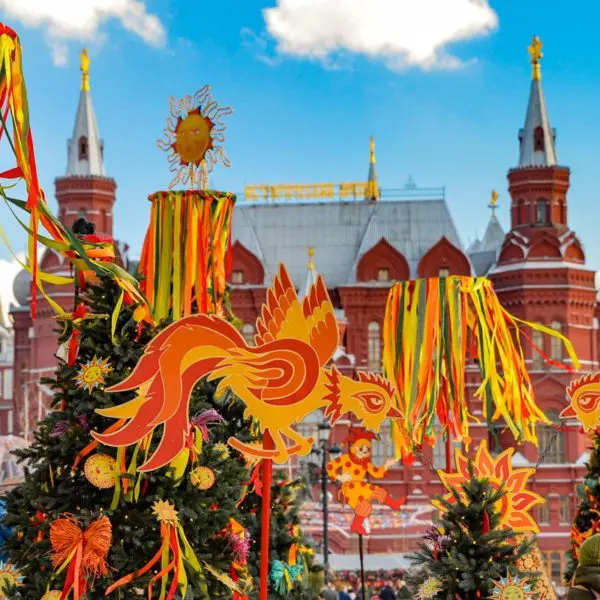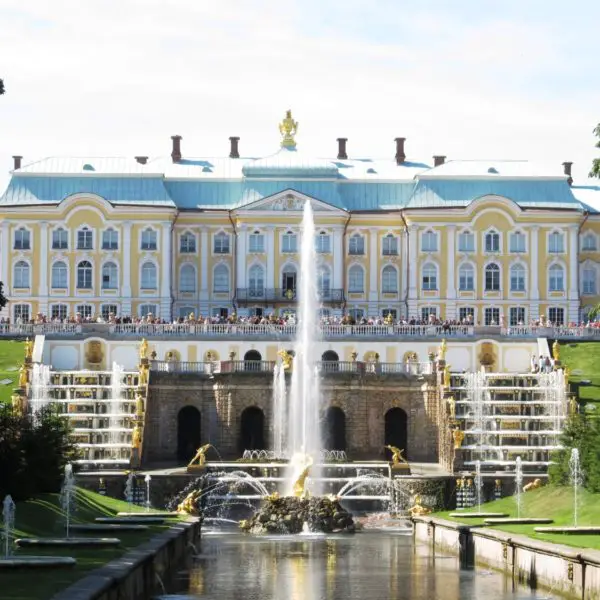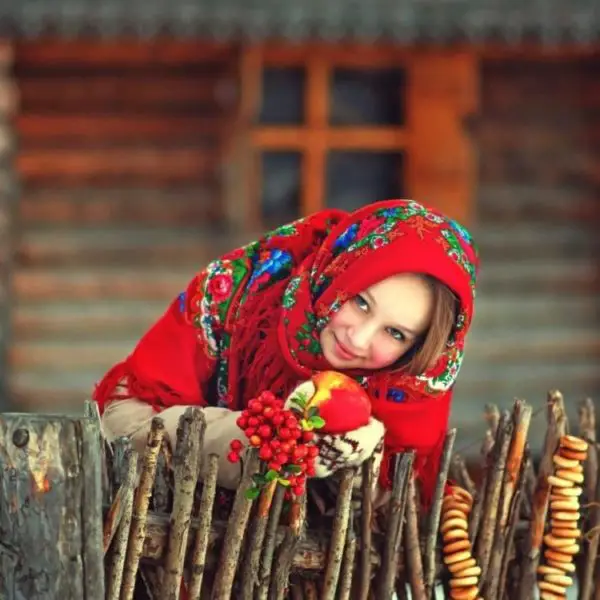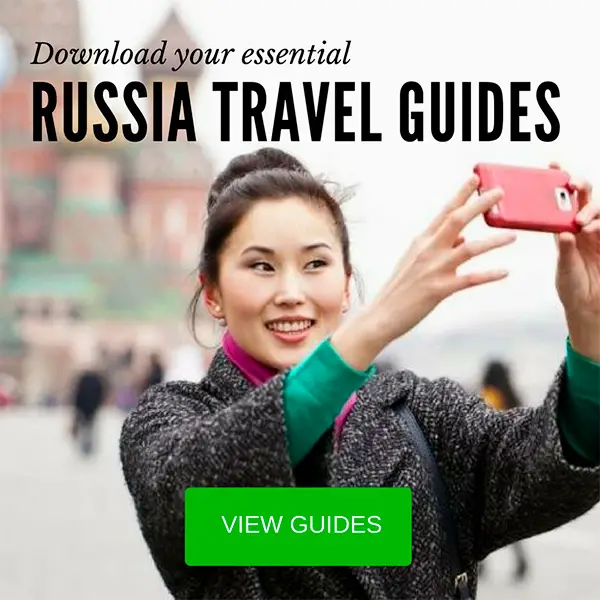10 Russian Festivals Every Traveller Should Experience
Most tourists come to Russia for a fleeting taste of its rich traditions and age-old culture. But to truly immerse yourself in the spirit of Russian culture, consider visiting the country during one of the Russian festivals or holidays.
Arrive during the festive season and you’ll experience authentic local customs on full display and the chance to participate in uniquely Russian style celebrations. Here are some of the most colourful, memorable and ridiculously enjoyable Russian festivals for you to plan your next trip around.
Table of Contents
1. New Year Celebrations – 31st December – 1st January
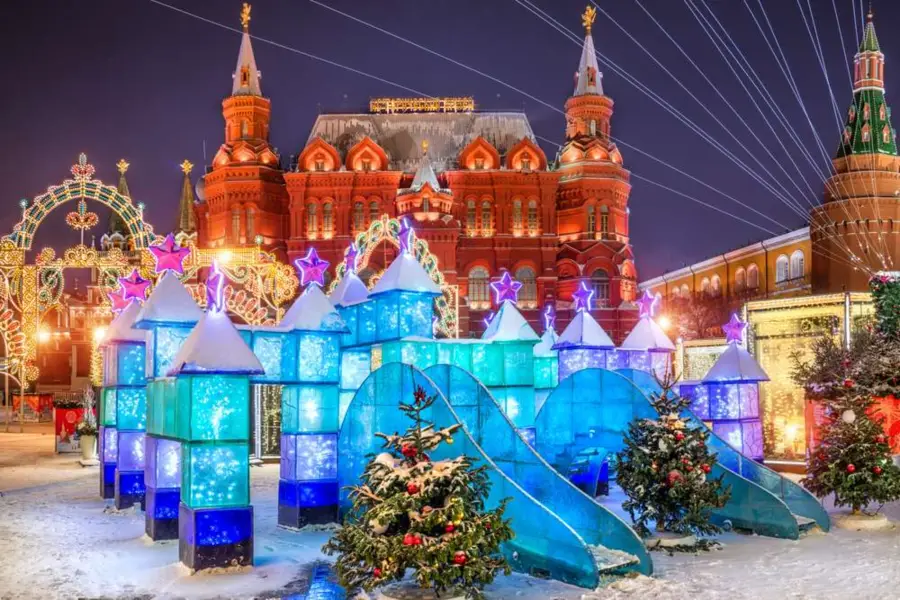
New Years is the most important holiday on the Russian festivals calendar. Although it’s primarily a family affair, where on New Year’s Eve, relatives gather at home for a huge feast and the exchange of gifts around a fir tree, tourists (at least in the big cities) certainly won’t miss out, with practically every hotel and restaurant geared up for an evening of Russian-style partying. On New Year’s Eve in Moscow, celebrations peak with the famous firework display in the Red Square. In St Petersburg, the biggest fireworks are launched over the Neva River. Post-midnight, revellers gather in parks and squares all over Russia to continue drinking and dancing – sub-zero temperatures be damned!
2. Orthodox Christmas – 7th January
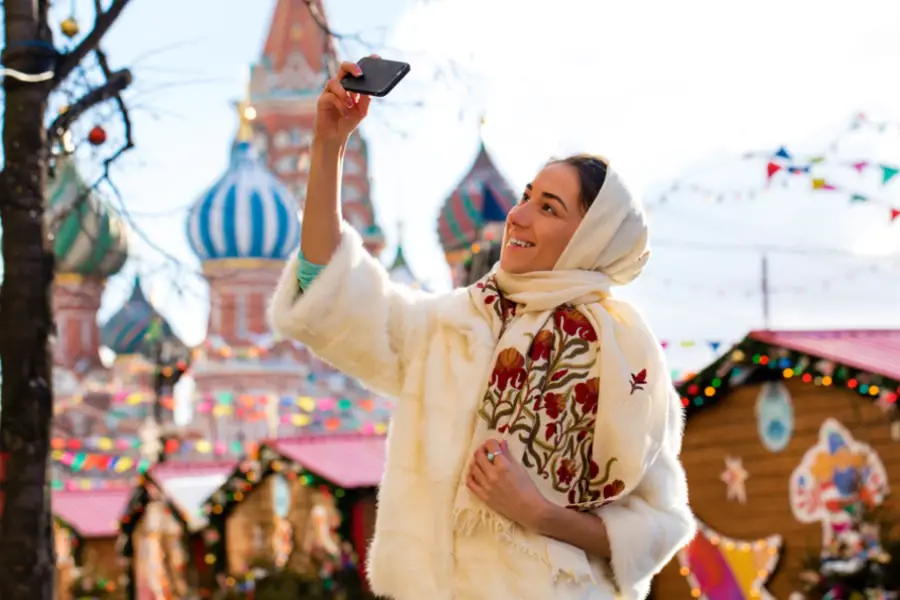
If you’re visiting Russia over New Years, you’ll be delighted to know the celebrations don’t stop after the next year ticks over. Christmas Day on the Russian Orthodox Calendar falls on January 7. Between New Years and Christmas, Moscow and St Petersburg’s public spaces are elaborately decorated with lavish ornaments and brightly lit Christmas trees, and the streets and parks bustle with Christmas fairs and markets. Explore our Russia Winter Tour to dive headfirst into the high points of this snowy escapade. On either Christmas Eve or Christmas Night, you have the chance to attend a traditional midnight mass in a beautiful candlelit Russian church.
Christmastide is a special time for Christians. In Russia, where Christianity was suppressed, the old traditions like fortune telling, which pre-dated the adoption of Christian beliefs in Russia, are part of remembering old customs. Caroling is common with songs often sung by costumed singers.
3. Winter Festival, mid-December to mid-January
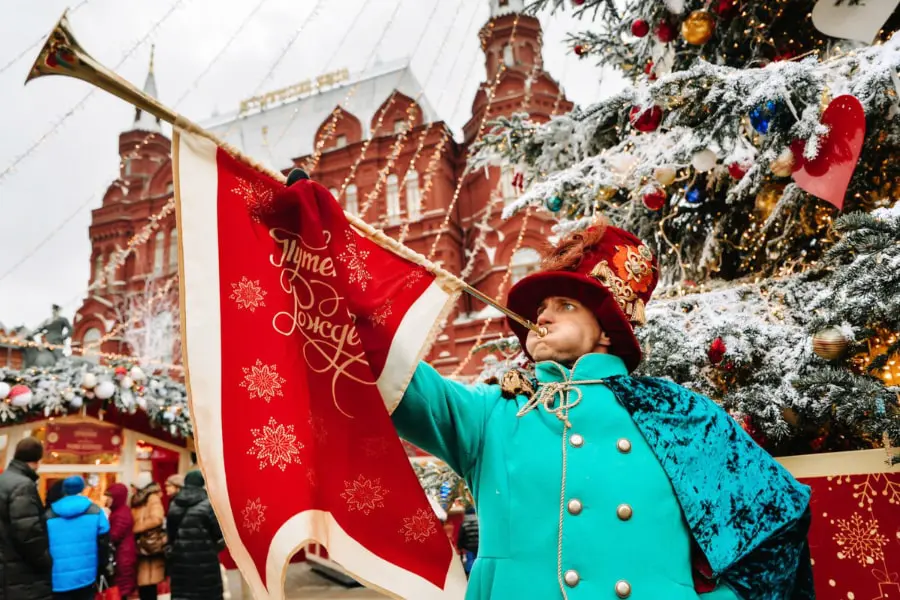
Russian winters are notoriously long and arduous, so the Russians do what they can to make freezing temperatures more fun – by throwing a month-long festival! All Russian cities have winter festivals celebrating local arts and culture, but Moscow’s hands down the biggest and best. Here the festival is a massive annual event that sees the city decked out in thousands of fairy lights, squares turned into ice skating rinks and a huge array of activities around the city. Jingle your way through Izmailovo Park with a ride in a traditional troika or three-horse sleigh. In Gorky Park, wander through an outdoor exhibition of incredible ice sculptures, and in Revolution Square, browse the handicraft markets, scoff down warm pancakes and bagels with honey, listen to a balalaika concert or watch a winter fashion show.
4. Maslenitsa (Pancake week) – February to early March
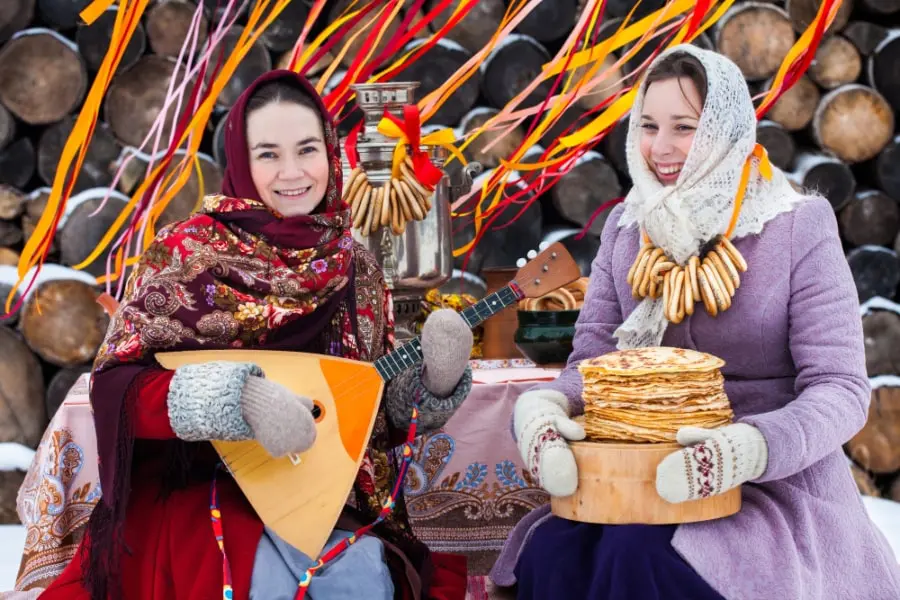
Seven weeks before Easter, Maslenitsa is a Russian festival that celebrates the end of winter and the coming of spring with a week of pancake-related festivities (what else?). In fact, thanks to its pagan roots, Maslenitsa is more like a carnival than an Orthodox Holy Week. It’s enjoyed all over Russia with parades, live music, dancing and fireworks. Of course, food is an essential part of Maslenitsa. Maslenitsa marks the beginning of Lent, and traditionally the last week milk, eggs and butter can be consumed. So naturally, blini (pancakes) are consumed in great quantities every day, either fresh out of the pan or doused with delicious sweet and savoury toppings. The festival culminates with the burning of a life-sized straw effigy of ‘Lady Maslenitsa”, meant to represent winter.
5. Reindeer Herders Festival in Yamal, end of March – beginning of April
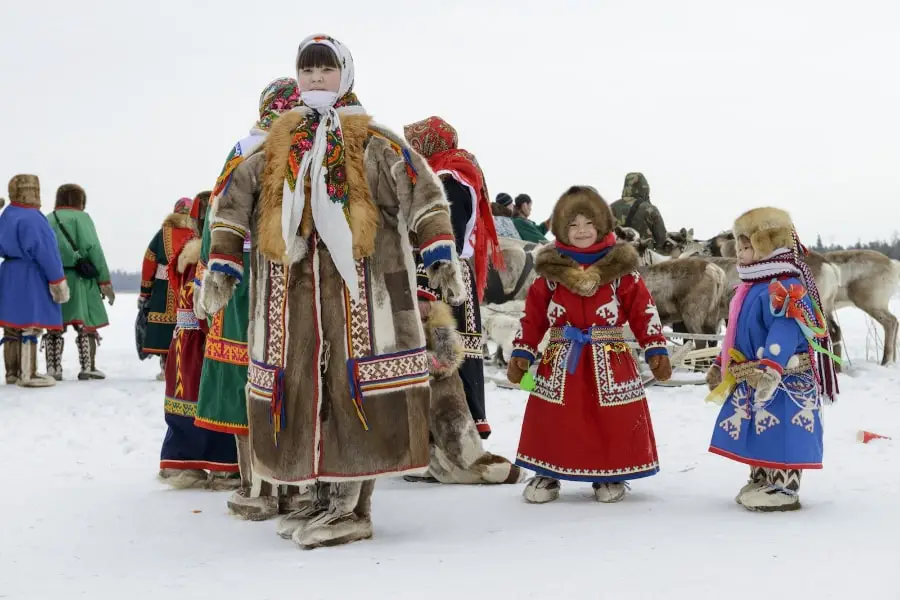
Even the remotest regions in Russia have their own unique celebrations. The indigenous Nenets of Yamal is the last remaining peoples to practice large-scale, nomadic reindeer herding, completing a one-way migration of up to 1,000km from the Russian mainland to their summer grazing camps above the Arctic Circle. At the end of this backbreaking journey, the Nenets let their hair down with a kind of tribal sports carnival, held in the town of Salekhard on the last Saturday of March.
The Reindeer Herders Festival is aimed at preserving the ancient traditions of Yamal’s indigenous people. The main spectacle is an incredible variety of reindeer races that even includes reindeer skiing (we’re not exactly sure how this one works). Nenets from competing camps battle to become champions of their national sports, which include sled jumping, lassoing, axe throwing and tug of war. Curious visitors are encouraged to participate while enjoying traditional reindeer meat snacks. This has to be one of the most interesting Russian festivals to be celebrated.
6. Russian Orthodox Easter – April
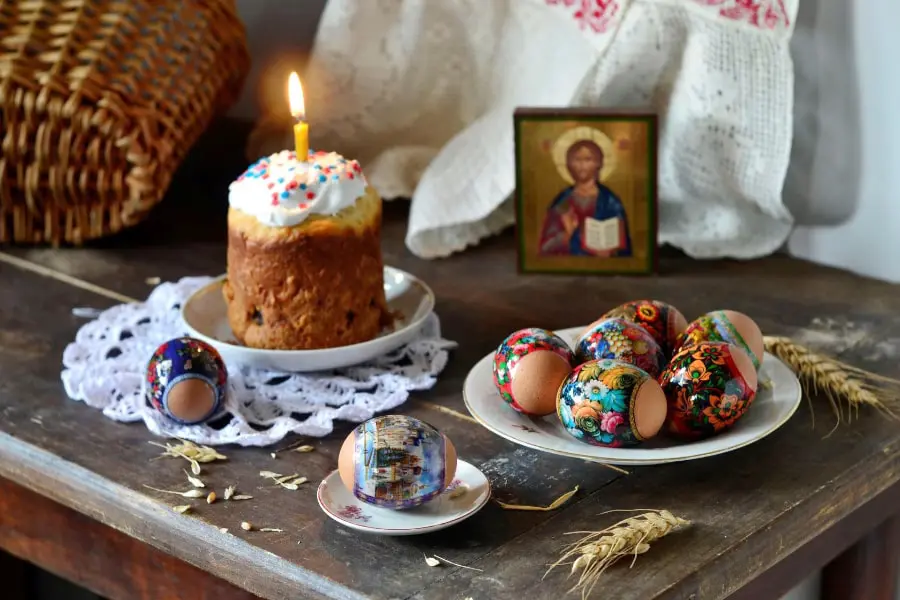
Orthodox Easter is a more traditional Russian festival that usually falls slightly later compared with the regular Christian calendar. Although it’s one of the most solemn Russian festivals, it’s a lovely time to experience Russia’s devotion to rites and rituals, with a week of church services taking place from the Palm Sunday processions to a lengthy Easter liturgy which begins on Saturday night and can flow well into Sunday. Even if you’re not a regular church-goer, attending at least part of the Easter liturgy can be a mesmerising and uplifting experience. Expect to see painted boiled eggs rather than chocolate ones, and be sure to try traditional Easter pastries such as “kulich” (sweet bread flavoured with honey and raisins).
7. Moscow Golden Mask Festival – March-April
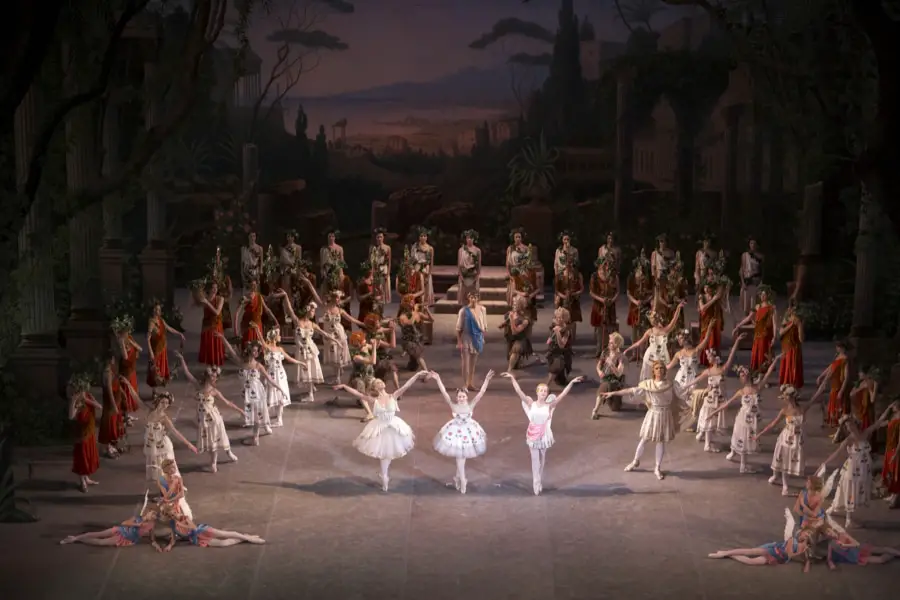
If you adore the arts and happen to be in Moscow during March and April, you’re in luck. The Golden Mask Festival presents an almost two-month-long program of the most important and innovative performances from all over Russia. Held in a variety of prestigious venues, the festival showcases all genres of theatre art including drama, opera, ballet, modern dance, musical and Russian puppet theatre. A prestigious awards ceremony is staged on the festival’s closing night in late April.
8. Victory Day – 9th May
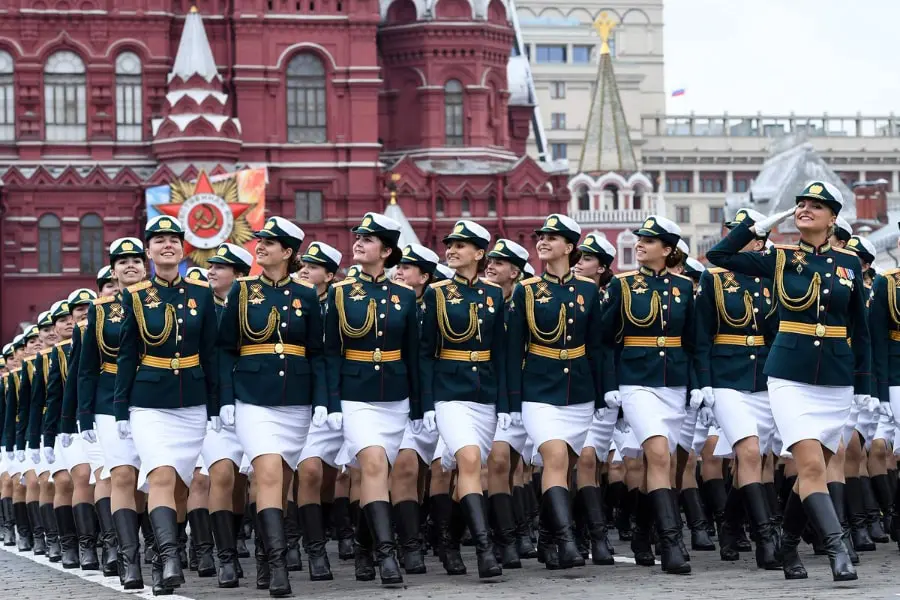
Commemorating the victory of the Soviet Union over Nazi Germany, this patriotic festival is bristling with military bombast. Around the country, the end of WWII is celebrated with parades, fireworks and displays of military might. The most ostentatious events are held in Moscow, with giant tanks, missiles and thousands of troops marching down the Red Square, while helicopters hover above the enormous crowds of spectators.
9. Peterhof Fountains opening and closing ceremonies
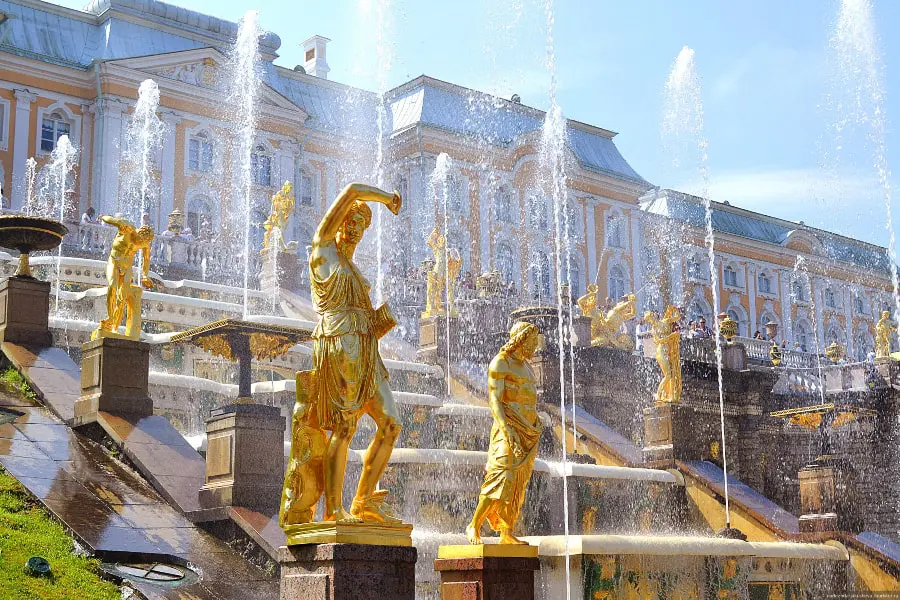
Peterhof’s series of palaces and gardens are astounding at any time, but the grandest visual spectacle of the year is undoubtedly the opening ceremony of the Fountains. Officially marking the start of the summer season, the ‘Russian Versailles’ entire collection of very expensive sprinklers goes live at once, and it’s a truly extraordinary sight. The festival lasts into the night, with musical performances, fireworks and classical fountains jazzed up with laser light shows and pyrotechnics. In mid-September, Peterhof holds a similar closing ceremony that’s equally as impressive.
10. St Petersburg “White Nights” Festival – end of May – beginning of July
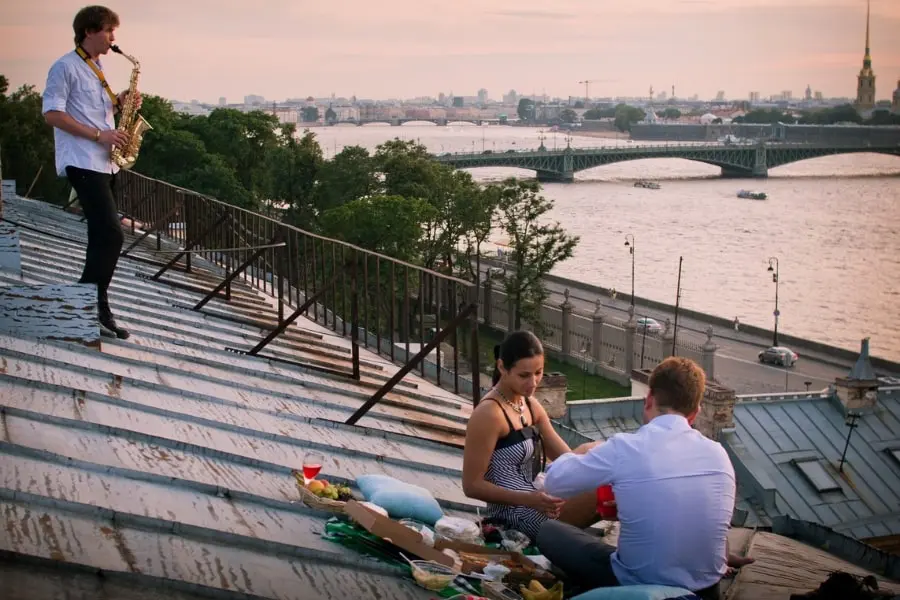
Without a doubt, one of the most memorable times to be in St Petersburg is during the White Nights Festival. Because of its far-northern geography, between mid-May and mid-July, the sun never completely sets, providing a romantic backdrop for a festival that celebrates music, dance, theatre and the intoxicating spell of a city where day and night are one and the party never needs to stop. Venues around the city invite world-class Russian and international performers to attend, with the Mariinsky Theatre alone clocking up a program of more than 175 operas, ballets and classical concerts. The White Nights is much more than watching theatre in austere venues, however. The entire city is buzzing with festive energy. St Petersburg’s bars and clubs are positively pumping and on a midnight stroll, you’ll be accompanied by street performers, ice cream sellers and spirited revellers contributing to a carnival atmosphere.
When planning your next trip to Russia, plan ahead to experience one of these Russian festivals. You will not regret it. Contact us for a custom Russian tour itinerary or for a ready-to-go tour package on [email protected]
Related posts
If you have any urgent questions or enquiries, please give us a call +61 412 587 785
